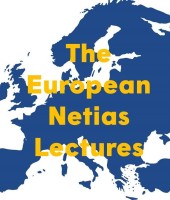Addressing the Challenge of Human-Technology Partnership in the Digital Era: A Human-Centered Information Space Approach
Lecture by James Hollan, Professor of Cognitive Science and Computer Science, University of California, San Diego, 2021/2022 Paris Institute for Advanced Study Fellow as part of the Netias Lectures Series.
No registration needed
Pour obtain the connection links : http://netias.science/events
Presentation
For far too long we have conceived of thinking as something that happens exclusively in the head. Thinking happens in the world as well as the head. We think with things, with our bodies, with marks on surfaces, and with other people. Increasingly, we think with computers, often the one we carry with us every where. Computers are now ubiquitous and embedded in virtually every new device and system, ranging from the omnipresent cellphone to the complex web of socio-technical systems that pervade and shape modern life. They connect our activities to ever-expanding information resources with previously unimaginable computational power. Yet with all the increases in capacity, speed, and connectivity, computer-mediated information activities remain fragmented and frustrating.
Designing the future of work at the human-technology frontier is one of the ten long-term science and engineering challenges identified by the U.S. National Science Foundation. In this presentation, I argue that a core aspect of this challenge arises from an unquestioned view of information systems as collections of separate passive tools rather than active partners. The scale of information available and the sophisticated cognition demanded by contemporary information work has outpaced innovation in user interfaces. In modern computing systems, information is encapsulated in silos, leaving users to shuttle files between applications, cobbling together workflows, requiring troublesome context switching and increasing attentional demands. In short, we lack a human-centered information work space, a cognitively supportive visual space for intellectual work.
No registration needed
Pour obtain the connection links : http://netias.science/events
|
|
|
Catalyzing A Human-Centered Information Research Program: Beyond Application and Document-Centered Views of Information 01 September 2021 - 30 June 2022 |
|
|


